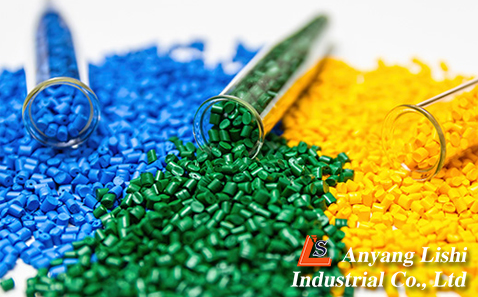
In the realm of the plastic industry, sodium feldspar emerges as a versatile and indispensable component, available in various mesh sizes to cater to diverse manufacturing needs. From 600 mesh to 800 mesh and 1250 mesh variants, each offers distinct advantages, contributing to the enhancement of plastic products in different ways.

Starting with the 600 mesh sodium feldspar, it serves as a crucial additive in plastic formulations. Its primary role lies in reinforcing the mechanical properties of plastics. By uniformly dispersing within the polymer matrix, it strengthens the structural integrity, improving tensile strength, impact resistance, and dimensional stability. This enhancement ensures that plastic products withstand the rigors of various applications, from packaging to automotive components.
Moving on to the 800 mesh sodium feldspar, its significance lies in its impact on the optical clarity and surface finish of plastics. As an additive, it imparts transparency and glossiness to plastic materials, enhancing their visual appeal and marketability. Moreover, its excellent flow properties facilitate smoother processing during molding and extrusion, resulting in flawlessly finished products. This makes it particularly suitable for applications where aesthetics play a crucial role, such as consumer electronics and decorative items.
Finally, the 1250 mesh sodium feldspar represents the pinnacle of fineness. This ultra-fine variant offers unparalleled control over material properties and surface characteristics, making it ideal for specialized applications. Its addition to plastic formulations improves rheological properties, ensuring precise flow and fill during molding processes. This enables manufacturers to produce intricate components with intricate details and tight tolerances, meeting the demands of sectors like medical devices and microelectronics.
Beyond their individual contributions to plastic performance, sodium feldspar additives offer broader benefits to the industry. By replacing traditional fillers with these finely ground minerals, manufacturers can achieve significant cost savings and environmental advantages. The use of feldspar reduces material consumption while optimizing production efficiency, leading to minimized waste generation and energy usage. This aligns with the growing emphasis on sustainability and resource conservation in the plastics sector.
In conclusion, the utilization of 600 mesh, 800 mesh, and 1250 mesh sodium feldspar underscores their pivotal role in advancing the capabilities and quality of plastic products. From enhancing mechanical strength to improving optical clarity and enabling precision molding, these additives continue to drive innovation and excellence in the plastic industry. Their versatility and performance make them indispensable components in the quest for superior plastics across a wide range of applications.

Whether you have questions or you would just like to say hello,Contact us!
Call Anytime:
+86 15837207537Send E-mail:
info@lsakminerals.comAddress:
Anyang City , Henan Province, China.